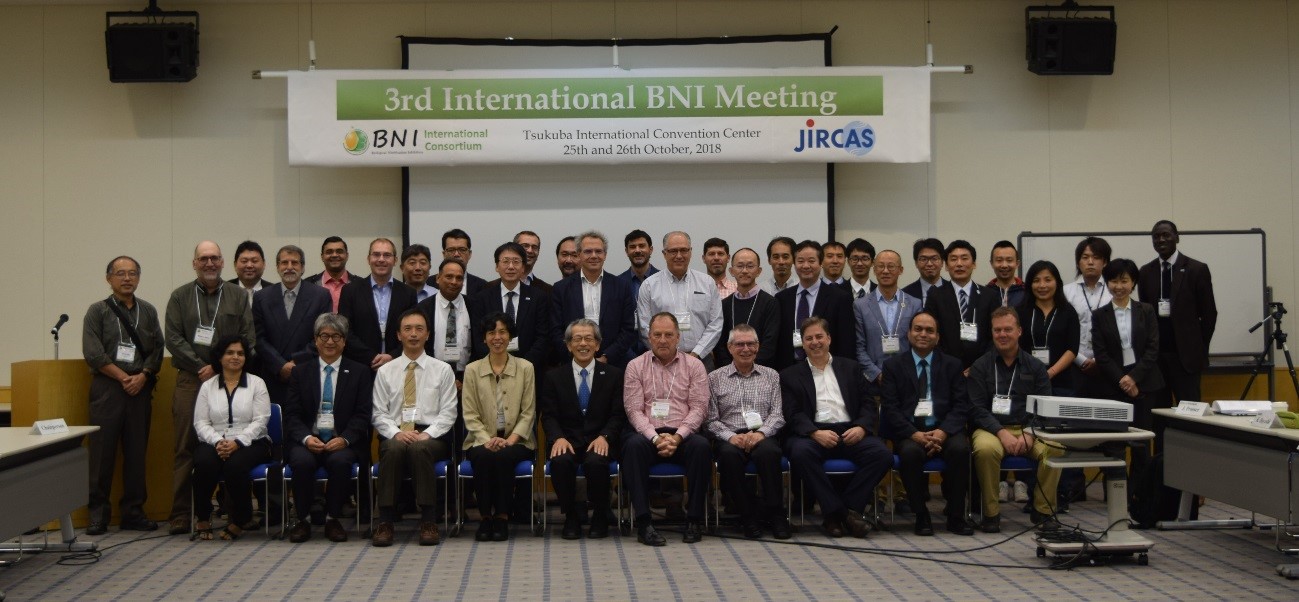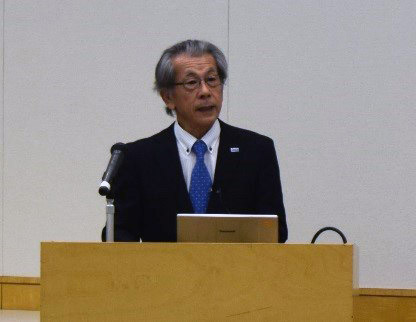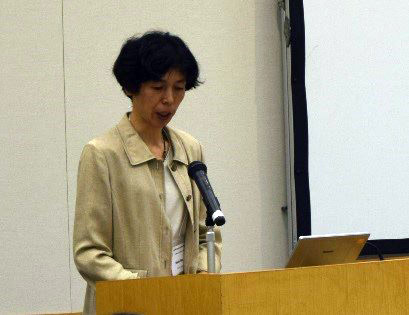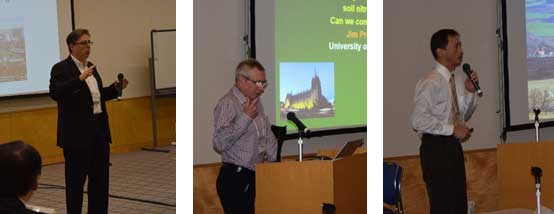The 3rd International BNI Meeting, organized by JIRCAS, was held on October 25 (Thu) and 26 (Fri), 2018 at Tsukuba International Congress Center (Epochal). This conference was the third biennial meeting held by the International Consortium on BNI (Biological Nitrification Inhibition) research, where several CGIAR institutes collaborate and participate in developing BNI research with JIRCAS. The following issues were discussed during the meeting:
- The progress of BNI research by members of the consortium since the last meeting in 2016
- How to proceed with BNI research in the future
- The necessity of transforming plant BNI-function into BNI-technology that can be deployed in agriculture
- Methodology development for ex-ante impact assessment to determine the potential benefits to agricultural systems from BNI-technology deployment in production systems involving maize, wheat, sorghum, and Brachiaria pastures
- In addition, integrating ex-ante analysis to help assess the potential economic benefits (due to crop production) and environmental benefits from BNI-technology
There were 40 attendees from participating organizations of the consortium, including 11 from international agricultural research institutes (CIAT, CIMMYT, ICRISAT, ILRI), 10 from overseas universities / institutes (UK, USA, China, Austria, France, Germany), and 6 from the National Agriculture and Food Research Organization, NARO, Japan (Institute for Agro-Environmental Sciences, Institute of Livestock and Grassland Science, Hokkaido Agricultural Research Center, and Advanced Analysis Center).
Three international subject specialists -- Dr. Timothy Searchinger (Princeton University Research Scholar, Food and Environment Policy), Dr. James Prosser (Professor at University of Aberdeen, Microbial Ecology and Soil Environment) and Dr. Kentaro Hayashi (Chief of Research Unit, Institute for Agro-Environmental Sciences, NARO, Geochemistry and Nitrogen Circulation) -- delivered keynote addresses related to the importance and impending need for developing BNI-technology, and the possible implications from such new production technologies in meeting the twin challenges facing the world, i.e. doubling food production by 2050 and reducing GHG emissions by 80% during that period. The importance of genetic mitigation through exploiting BNI-technology was also emphasized by the keynote speakers.
Research achievements were shared through the keynote addresses and research presentations on the first day. Target research strategies, collaborative research experiments, and the development of an action plan to develop BNI-technology were discussed on the second day. The meeting concluded successfully, with participants looking forward to the next meeting in two years.
Keynote speakers
Three international subject specialists -- Dr. Timothy Searchinger (Princeton University Research Scholar, Food and Environment Policy), Dr. James Prosser (Professor at University of Aberdeen, Microbial Ecology and Soil Environment) and Dr. Kentaro Hayashi (Chief of Research Unit, Institute for Agro-Environmental Sciences, NARO, Geochemistry and Nitrogen Circulation) --




